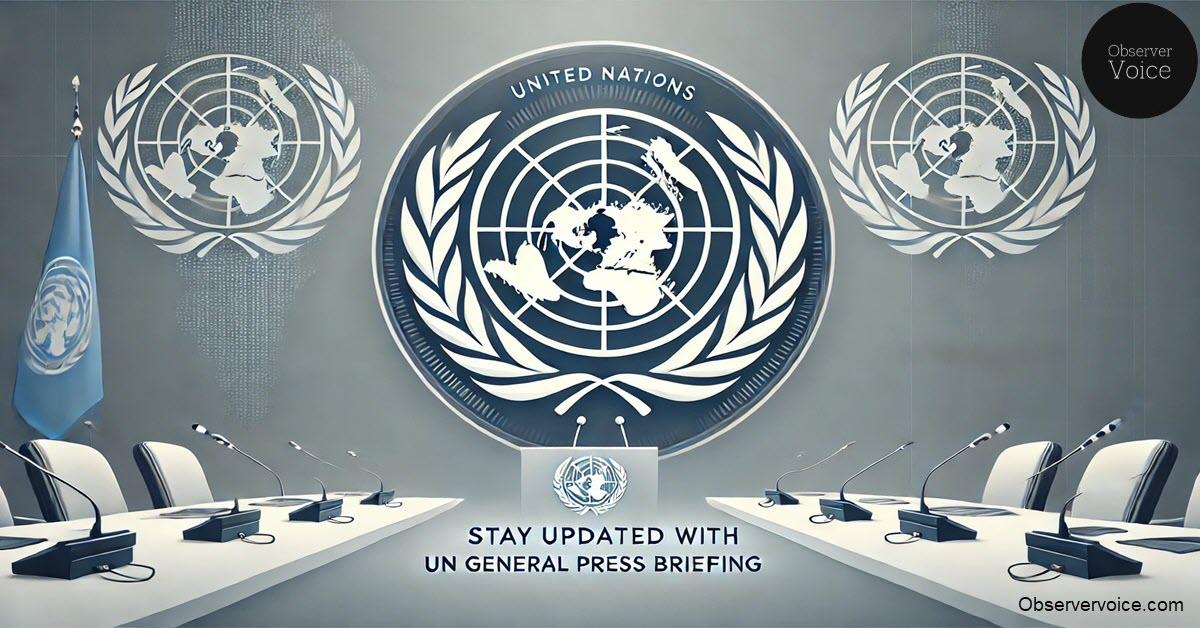UN Assembly’s Historic Resolutions and Global Challenges

The United Nations General Assembly has made significant strides during its seventy-ninth session, addressing pressing global issues and adopting landmark resolutions. These resolutions reflect the Assembly’s commitment to peace, justice, and sustainable development. The Assembly’s actions have sparked discussions on various topics, including the Israeli-Palestinian conflict, climate change, and global health threats. As world leaders gather to tackle these challenges, the Assembly emphasizes the importance of collective action for a better future.
Landmark Resolutions on the Israeli-Palestinian Conflict
In a historic move, the General Assembly adopted a resolution demanding that Israel end its presence in the Occupied Palestinian Territory within 12 months. This resolution, passed on September 18, received overwhelming support, with 124 votes in favor, 14 against, and 43 abstentions. The Assembly’s decision was based on the International Court of Justice’s advisory opinion regarding Israel’s policies and practices in the region, including East Jerusalem. The resolution calls for an immediate cessation of settlement activities, the evacuation of settlers, and the return of land seized since 1967.
The Permanent Observer for the State of Palestine emphasized that “delayed justice is denied justice,” highlighting the urgent need for accountability. In contrast, Israel’s representative criticized the Assembly for failing to condemn the terror attacks that occurred on October 7, 2023. This divergence in perspectives underscores the complexity of the Israeli-Palestinian conflict and the challenges faced by the international community in seeking a resolution. The Assembly’s actions reflect a growing recognition of the need for a two-state solution as the only viable path to lasting peace in the region.
The Pact for the Future: A Commitment to Sustainable Development
On September 22, the General Assembly endorsed “The Pact for the Future,” a groundbreaking document that outlines 56 pledges aimed at safeguarding the interests of current and future generations. This pact emphasizes the urgency of addressing climate change and global conflicts, placing poverty eradication at the forefront of sustainable development efforts. General Assembly President Philémon Yang of Cameroon stated, “Our future is in our hands,” urging world leaders to take bold actions to implement the 2030 Agenda for Sustainable Development.
United Nations Secretary-General António Guterres echoed these sentiments, warning that the world is “heading off the rails” as resources are diverted towards death and destruction instead of opportunities and hope. The Assembly’s high-level debate from September 24 to September 30 further highlighted the rising global level of impunity, which Guterres described as “politically indefensible and morally intolerable.” The Pact for the Future represents a collective commitment to tackle pressing global challenges and ensure a sustainable future for all.
Addressing Global Health Threats and Human Rights Violations
The General Assembly has also taken significant steps to address global health threats, particularly antimicrobial resistance. On October 7, the Assembly adopted a Political Declaration recognizing antimicrobial resistance as a critical global health issue. This declaration calls for immediate action to combat diseases, enhance food security, and advance the 2030 Agenda. The Assembly reaffirmed its commitment to fighting communicable diseases that disproportionately affect poorer nations, such as malaria, HIV/AIDS, and tuberculosis.
In addition to health concerns, the Assembly has voiced alarm over human rights violations in conflict zones. On November 1, Human Rights Council President Omar Zniber warned that violations against civilians in conflict have become alarmingly common. He urged all nations to protect civilian populations and uphold human rights across the globe. The Assembly’s discussions on these issues reflect a growing recognition of the interconnectedness of health, human rights, and global stability.
Calls for Reform and the Future of the United Nations
As the General Assembly continues to address pressing global issues, calls for reform within the United Nations have intensified. On November 4, delegates emphasized the need for the UN to be led by a woman for the first time in its nearly 80-year history. This call for gender equality in leadership positions reflects a broader demand for inclusivity and representation within the UN.
Moreover, on November 11, speakers urged reforms to the Security Council’s structure and veto power. The Assembly’s discussions highlighted the growing frustration with the Council’s deadlock on critical issues, including the situations in Gaza and Sudan. The Assembly’s “veto initiative” allows for formal meetings within 10 working days of a veto being cast, aiming to enhance accountability and responsiveness. As the Assembly navigates these challenges, it remains committed to fostering dialogue and cooperation among member states to address the pressing issues facing the world today.
Observer Voice is the one stop site for National, International news, Sports, Editor’s Choice, Art/culture contents, Quotes and much more. We also cover historical contents. Historical contents includes World History, Indian History, and what happened today. The website also covers Entertainment across the India and World.

